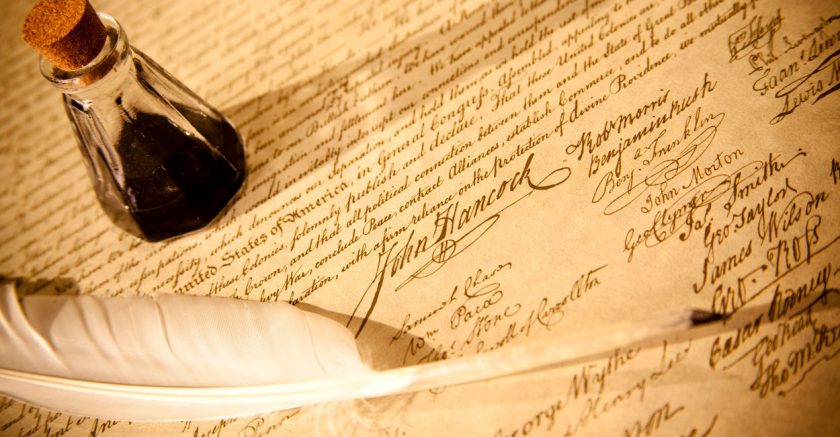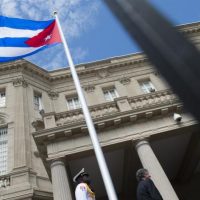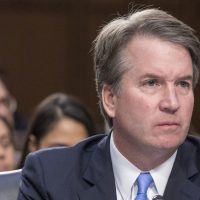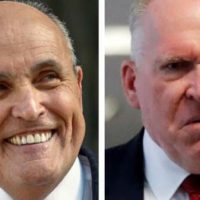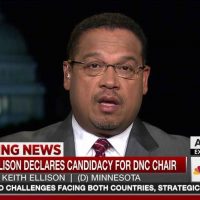Americans should be thankful not only for the rare genius that assembled in Philadelphia in 1787 to draft the Constitution, but for the unique circumstances under which they met.
Not all moments in time are ripe for founding a nation. Nor is every citizenry equally prepared to receive new modes and orders. The Founders’ time and generation presented just such an opportunity. Our time would not.
Earlier this month, University of Texas law professor Sanford Levinson wrote that “not enough people connect the dots … between our political dysfunctions and the sacred Constitution of 1787.”
What dysfunctions does he have in mind? President Donald Trump’s “near dictatorial powers with regard to mobilization of the American military, control of immigration, or the imposition of tariffs against one and all countries around the world.”
Levinson is not the only person questioning the wisdom of our constitutional design now that Trump occupies the White House. Weeks after the 2016 election, in which Trump won the Electoral College but lost the popular vote by a small margin, the editorial board of The New York Times demanded that we replace our “antiquated system” of presidential selection and impose direct popular elections.
Similarly, after Republicans took control of the Senate, Jacobin’s Daniel Lazare advocated abolishing the upper chamber, which he contends “grossly marginalized” voters in states such as California and New York.
It is difficult to reason about the proper structure of government in the midst of partisan tumult. This is true of Republicans as well. Immediately after the 2016 election, Republican support for direct election of the president dropped from 54 percent to 19 percent.
Both Democrats and Republicans know what institutional arrangements benefit their side and, if given the opportunity, would rig the system in their favor.
Thankfully, party conflict at the time of the founding was virtually nonexistent, and factional strife was tamped down. According to James Madison, going through the crucible of the Revolutionary War bound the nation together and “repressed the passions most unfriendly to order and concord.”
The unity born of this great existential threat “stifled the ordinary diversity of opinions on great national questions.” Hence, “no spirit of party connected with the changes to be made.” So too did the near universal experience of the failures of the Articles of Confederation.
This national unity did not last long. George Washington was still in the White House when the battle lines were drawn between the Federalists led by Alexander Hamilton and the Democratic-Republicans led by James Madison and Thomas Jefferson.
Had the Constitution been drafted only a few years later, these inchoate parties already might have become sufficiently developed to give a partisan taint to both the convention and ratification debates that would have followed.
The revolution not only tempered factionalism and forestalled partisanship, it also elevated a cadre of universally revered national figures capable of effectively championing the Constitution. As Madison writes, the war imbued the public with “enthusiastic confidence … in their public leaders”—men such as Washington, Hamilton, Ben Franklin, and Madison.
If not for the public reputations of these men, citizens may have been understandably hesitant to accept a wholly new and untested form of government. Leaving the familiar shores of the status quo is always a dangerous risk. But, with trusted captains at the helm, the nation was able to face down the fear of the unknown.
Read the full story from The Daily Signal
Want more BFT? Leave us a voicemail on our page or follow us on Twitter @BFT_Podcast and Facebook @BluntForceTruthPodcast. We want to hear from you! There’s no better place to get the #BluntForceTruth.

